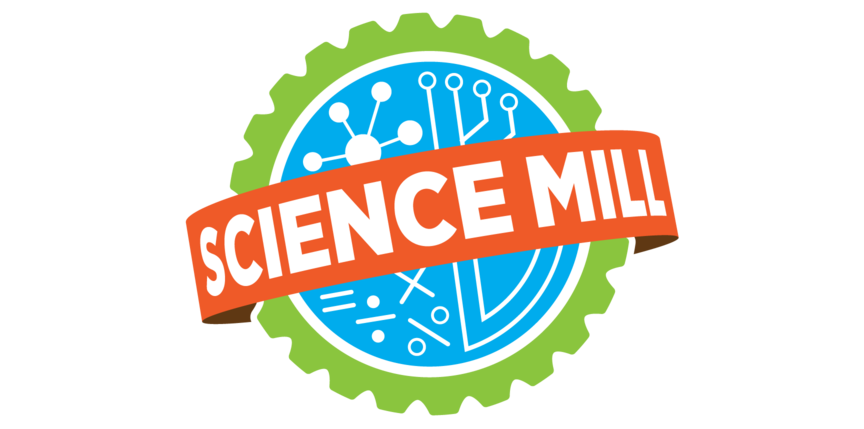Curious about Adventures in STEM Summer Camp at the Science Mill?
Our STEM Career Immersion Camps offer five days of action-filled adventures. To be victorious, you’ll have to drop some STEM knowledge on these challenges. By the end of the week you’ll have new friends, new skills and new goals for your future!
Here’s a look at some of the activities and connected STEM careers:
Apocalypse Now… What?
To get ahead in a post-apocalyptic world, you need to build tools that can move with you. Engineer portable protection pods by manipulating the powers of air, water and pressure. Then put your skills to work combining textiles and circuitry to design “smart” accessories and wearable technology that help you stay mobile in a haywire, apocalyptic world.
Engineering is not just for buildings and bridges. Engineers develop the everyday products we use, and they keep people’s needs in mind when designing them. In a Hunger Games-like world, many things threaten everyday safety. Students will learn about being an industrial designer, become a part of the Hunger Games plot while working as a team to meet the potential needs of people surviving in the districts. Complete the task by designing a fashionable wearable technology (or technology enhanced) accessory to meet one of the needs of life in the districts.
Robotics to the Rescue
You and your team are going to need some help getting out of this apocalyptic mess. Complete a team-based rescue challenge by designing a one-of-a-kind robot and then developing a mobile app to control it.
Today, robotics is a booming field, with an expanding role in manufacturing, mining, agriculture, and a wide range of other fields, including jobs too hazardous to be performed by people. Explore the field of robotics by taking on a rescue mission too dangerous to be done by mankind. Tackle a dynamic course to overcome challenges in this post-apocalyptic world of falling buildings, caving structures, shattered bridges.
Zombies!
Just when you thought you had things under control, there’s a zombie outbreak and you’re infected! You know zombies, they’re always losing limbs. Can you bio-engineer your way out of permanently losing an arm or leg? Design and build a prosthetic limb before it’s too late!
Explore osteology, kinesiology, and bio engineering, all sciences needed to understand bones and movement, allowing scientists to develop and build prosthetic limbs. Become a STEM entrepreneur along the way as you learn how to best design, develop, and market your unique limb to your target customer. Campers will also learn about epidemiology, the study of diseases and how they spread. They will become disease detectives!
Did You Know…
Our Johnson City-based camps offer optional FREE round-trip transportation to the Science Mill from Burnet and Marble Falls.
Pre/post-camp care is also available in Johnson City: 8am-9am ($25/week) and/or 4pm-5pm ($25/week).
Limited scholarship funds are available, based on financial need.






